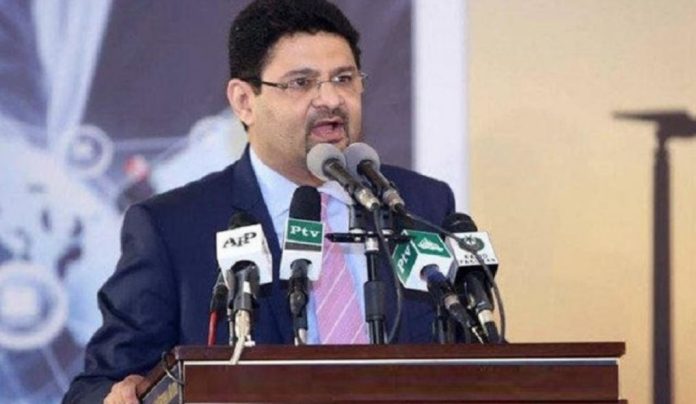ISLAMABAD, JUL 4: Finance Minister Miftah Ismail on Monday refuted reports claiming that the International Monetary Fund’s (IMF) loan programme for Pakistan had been postponed, saying there was “no truth” to it.
The minister issued a clarification via a tweet as he shared a news report carried by a website named Global Village Space claiming the postponement of the IMF programme due to an alleged impasse over “anti-corruption regulations”.
The report also claimed that the IMF was seeking the review of laws pertaining to the National Accountability Bureau (NAB), adding that “the government is willing to implement other financial measures, except the ones related to the NAB.”
The minister, however, dismissed the report as factually incorrect. “I have been reading with some amusement all the tweets and stories about IMF programme being postponed or delayed due to some anti-corruption law. There is no truth to it. The IMF programme is on track,” Ismail clarified in a tweet.
The IMF had in June 2019 approved a three-year, $6bn loan “to support Pakistan’s economic plan, aimed at returning “sustainable growth to the country’s economy and improving the standards of living”.
The minister had on June 28 announced that Pakistan had received the Memorandum of Economic and Fiscal Policies (MEFP) from the IMF for the combined seventh and eighth reviews.
Under the MEFP, prior actions include the passage of the federal budget as agreed to with the IMF and presented in the National Assembly on June 24 and present a memorandum of understanding (MoU) duly signed by the provincial governments to jointly provide about Rs750bn cash surplus to the Centre.
The MEFP is based on budgetary measures announced by Ismail in his winding-up speech on the revised budget in the National Assembly last week, envisaging over Rs1.716 trillion (2.2pc of GDP) of fiscal adjustment, mostly through taxation, including 10pc super tax on 13 industries and personal income tax covering monthly incomes above Rs50,000 per month.
This is the biggest fiscal adjustment in a single year that would help turn about Rs1.6tr primary deficit — the difference between revenues and expenditures excluding interest payments — during the current fiscal year into a Rs152bn surplus next year.
The Ministry of Finance projected a Rs800bn (about 1pc of GDP) provincial surplus in the budget to help contain a consolidated budget deficit at 4.9pc of GDP, but three provinces — Sindh, Balochistan and Khyber Pakhtunkhwa — announced deficit budgets or no surplus. This nullified the impact of about Rs125bn surplus announced by Punjab that was too lower than its share.
Therefore, the federal government is now required to share with IMF an MoU with provinces along with the finance bill passed by parliament as prior actions to ensure that budget numbers presented in the fiscal framework would be adhered to.
The two sides would then jointly go through the MEFP soon before formal signing by the finance minister and the State Bank governor to enable the fund staff to circulate Pakistan’s case among the executive board members for approval.
In all probability, two tranches of about $918 million each (or $687m Special Drawing Rights, or SDRs) would be made available to Pakistan at once in the last week of July of the first week of August, the officials said.
















